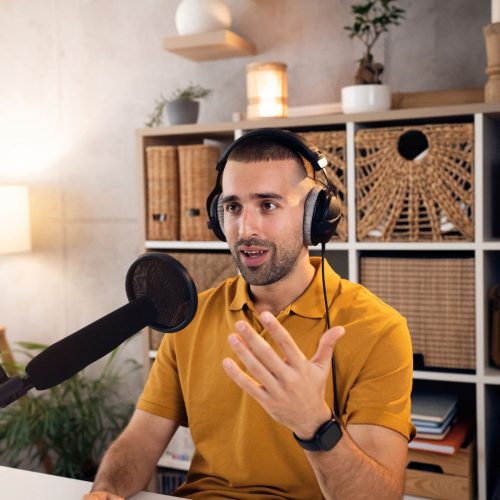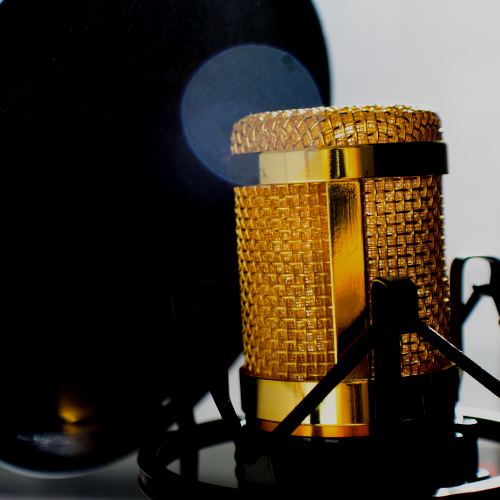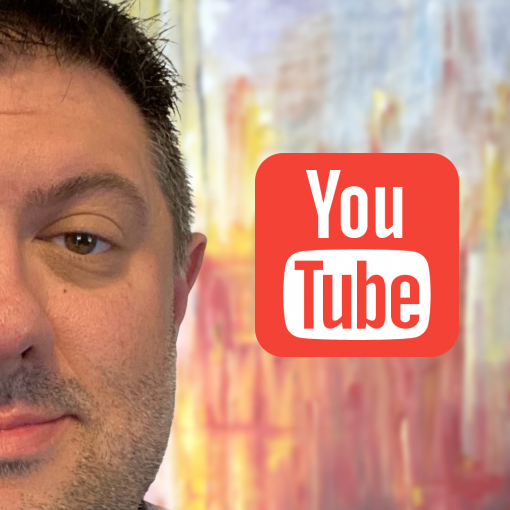The Original Video That Kicked This Party Off
Check Out Let’s Blow This Up On Your Favorite Platform
Apple Podcasts | Spotify | Amazon Music | iHeartRadio | Podchaser | YouTube
 Solo podcasting is one of the most effective ways to build authority, trust, and engagement with your audience. While you may think it’s a daunting task because you have no help carrying the conversation, producing solo content actually puts you in a great spot because all the expertise is coming from one source – you.
Solo podcasting is one of the most effective ways to build authority, trust, and engagement with your audience. While you may think it’s a daunting task because you have no help carrying the conversation, producing solo content actually puts you in a great spot because all the expertise is coming from one source – you.
In this post (and subsequent podcast episodes found above), I’ve got five actionable tips to improve your solo podcast delivery (10 total if you go back in time with me to an episode of Pod Theory from 2021). From cutting out the fluff to embracing unscripted recording, these techniques will help you create episodes that feel natural and delivered with confidence.
Solo episodes are perfect for business leaders, professionals, and brand builders who want to turn podcasting into a smart content strategy. They allow you to make genuine connections and project your message with clarity, value, and confidence (without a co-host or guest along for the ride).
These five tips will help you elevate your solo game, whether you’re brand new to podcasting or looking to tighten up your current delivery.
1. Stop Reading, Start Talking
You don’t need a word-for-word script to sound like you know what you’re doing. In fact, reading a script can make your episodes sound robotic and disconnected. Your audience wants to hear from you – not the robotic, reading-something-line-for-line version of you.
Instead of a script, try this:
-
Build a bullet-point outline with your key talking points.
-
Focus on one clear idea per segment or section.
-
Trust your expertise and speak from experience.
If you can explain your topic in a conversation with a client or colleague, you can do it solo on a mic.
2. Know What You’re Going to Say (Before You Say It)
Winging it only works if you’re a pro at staying on track. Most people aren’t.
But preparation doesn’t mean writing a script. It means getting clear on what you want the listener to walk away with.
Here’s the best way to prepare and execute this initiative:
-
Decide on your episode’s one main takeaway.
-
Break that idea down into 3–5 supporting points.
-
Think through real-world examples or stories to bring it to life.
This makes recording faster, editing easier, and your final product a lot stronger.
YOU MAY ALSO LIKE: How to Develop Your Own Podcasting Best Practices
3. Respect the Listener’s Time
Solo episodes that drag lose listeners fast. Just because you’re not sharing the mic doesn’t mean you should fill the space with filler. Be concise. Be intentional.
Here’s how to tighten things up:
-
Cut out the background noise (literally and figuratively).
-
Make your point, then move to the next.
-
Keep episodes approximately 15-25 minutes unless you’ve got a damn good reason to run long.
If your podcast sounds like someone thinking out loud for 40 minutes, it’s probably not getting shared. There’s no sense in filling your episode with useless info in the name of hitting an arbitrary time mark.
4. Speak Like a Human Being
Your tone matters. Solo podcasting gives you the chance to speak directly to your audience, so don’t waste it sounding like you’re presenting to a boardroom. Talk like you would to someone who actually wants to hear from you.
Improve your delivery by:
-
Using natural cadence and varying your speed and tone.
-
Letting your personality come through, sarcasm and all. With solo podcasting, authenticity is king.
-
Pausing when needed. Silence isn’t awkward; it’s powerful. And if you feel the silence is TOO long, it can be tightened up in post-production.
Recording yourself and playing it back (yes, even if it feels cringeworthy) will help you refine your style.
5. Get Comfortable With “Good Enough”
Perfection is the enemy of momentum. Chasing the perfect solo episode will keep you from hitting publish. Flawless delivery isn’t what anyone expects of you. Instead, focus on being real and delivering useful content that helps your listener solve a problem, feel better about themselves, or simply have a better outlook on their day ahead.
Here’s how to push past the need to be perfect:
-
Accept that you’ll make minor flubs. Either fix them all in post-production or leave them in. Always keep the experience you want to present to your audience in mind when it comes to this decision.
-
Focus on value, not polish.
-
Ship the episode, review what worked, and focus on ways you can improve the next time, the time after that, and the time after that.
You’ll get more confident with every episode. So don’t let inaction prevent you from a) producing content your audience craves and b) getting better at your craft.
Solo podcasting is one of the most versatile tools in your content strategy. It builds authority. It fills your content pipeline. And it gives your audience a direct line to your expertise. But it only works if you commit to getting better.
Pick one of these tips and apply it to your next recording. Then pick another. Your delivery will improve, your content will hit harder, and your audience will keep coming back.





